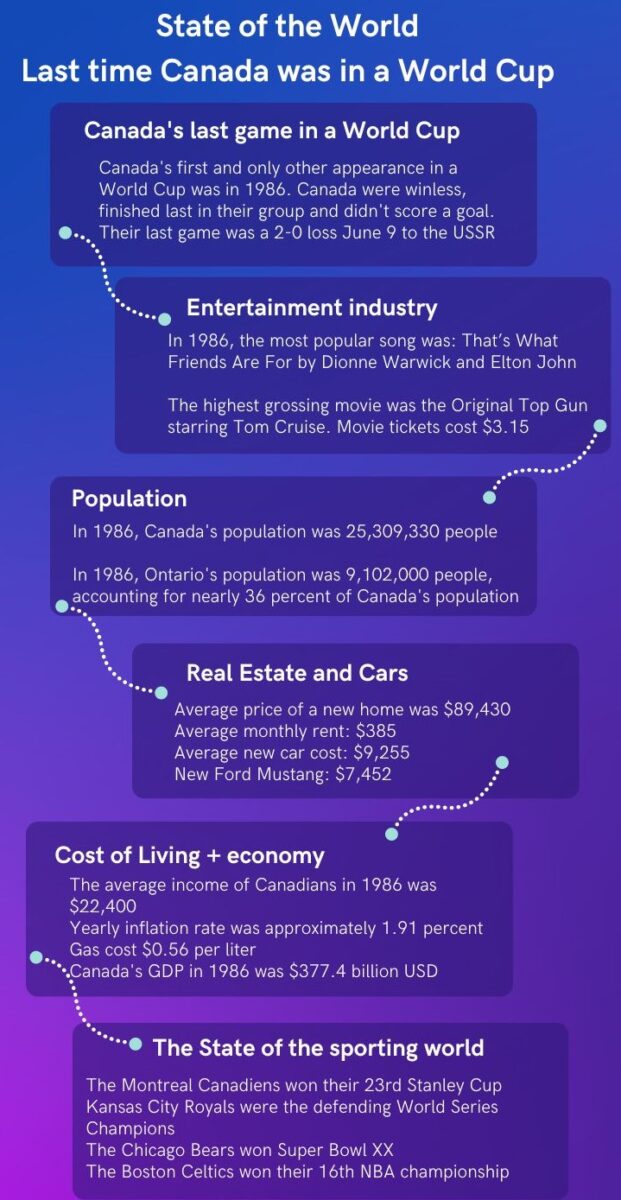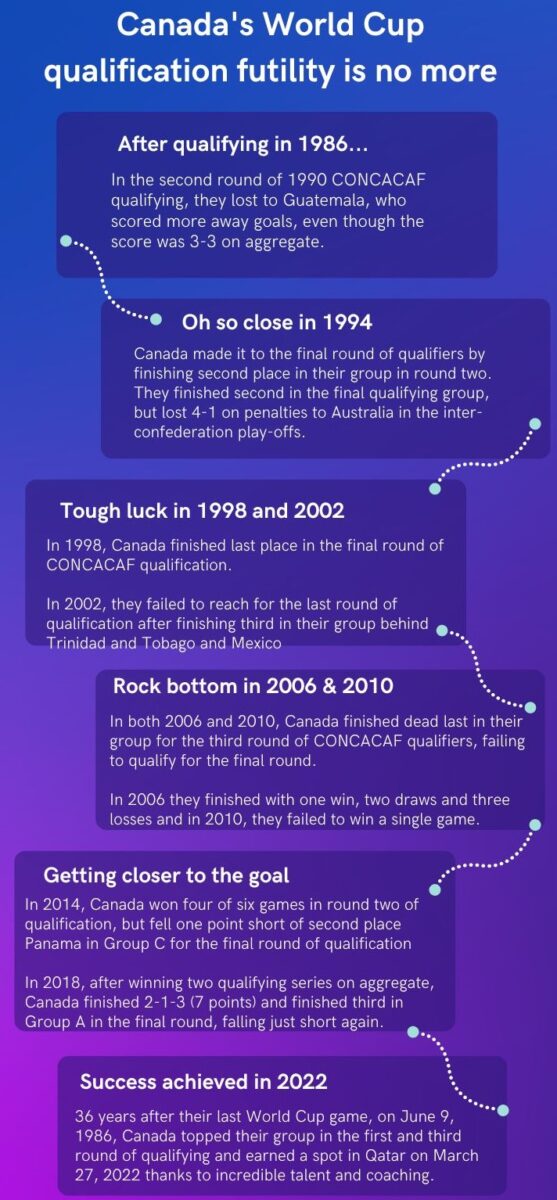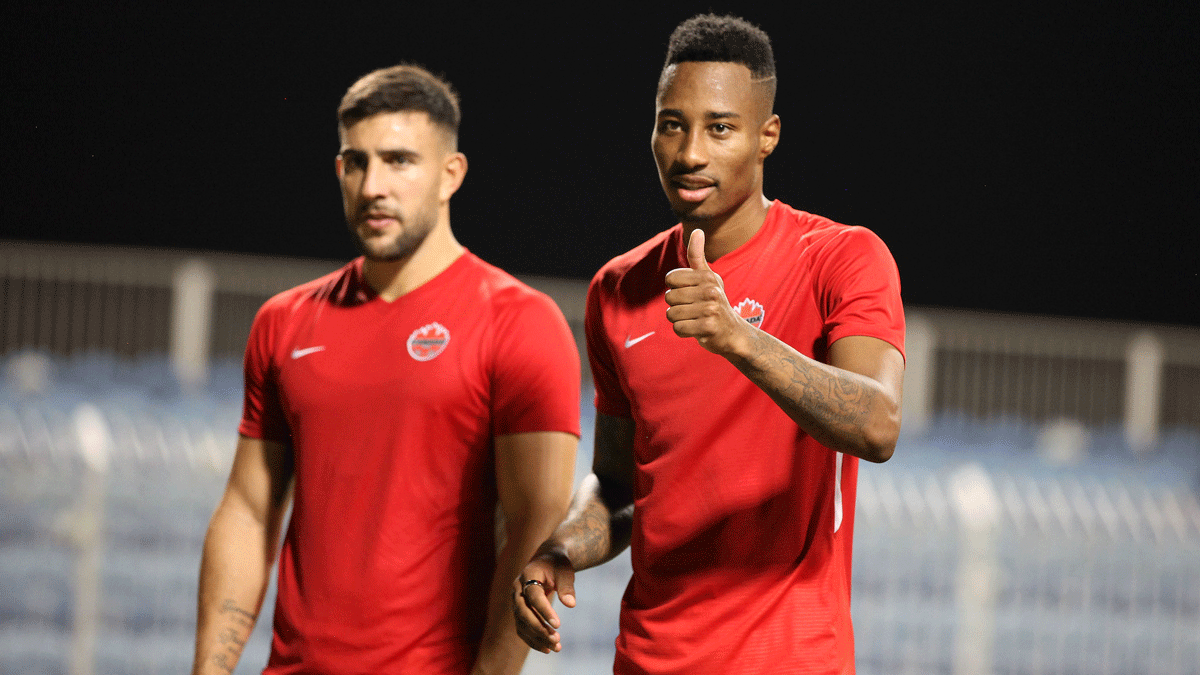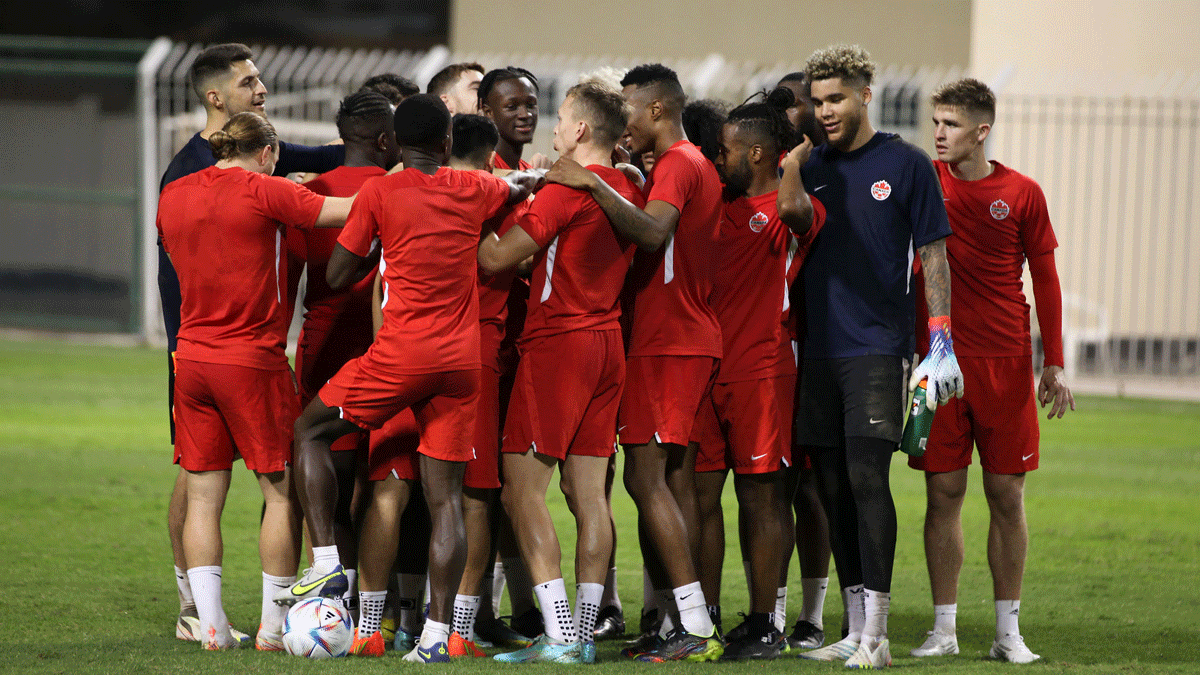After a 36-year wait, the Canadian men’s soccer team will take the pitch at the FIFA World Cup, just the second-ever appearance for the country in the sport’s premier event.
Qualifying for the tournament — which begins today in host country Qatar — was a significant accomplishment for the men’s team and is widely viewed as a major boost for the growth of soccer in Canada.
Canada plays its first game Wednesday against Belgium.

According to Kristian Jack, the vice-president of media and content for the Canadian Premier League, qualifying for Qatar has given Canadian soccer fans the chance to cheer for their own country after decades of supporting other countries.
“It was important for Canada to qualify and feel like they belonged,” said Jack. “It shows the world that Canada is a true football nation. Canada competing in Qatar will inspire a whole new generation of Canadians to pick up a ball and play.”
‘In the last 15 to 20 years, the amount of kids registering to play minor soccer is through the roof … and that comes from watching soccer on television.’
Gordon Smith, soccer analyst – TSN
Salomon Mutanguha is an avid soccer fan and is looking forward to watching Canada participate.
“My family comes from a very small country that has never been to the World Cup,” Mutanguha said. “I’ve been watching the World Cup for a long time but haven’t gotten the chance to watch my own country play. Now I finally have that chance.”
The only other time Canada’s men’s team qualified for the World Cup was in 1986, when they lost all three of their group-stage games and failed to score. After failing to qualify for eight consecutive World Cups, this year Team Canada finally showed the world what this country’s players are capable of.

Canada was dominant in qualifiers in 2022. In the first round of qualification, the team won all four of their games in commanding fashion, scoring a whopping 27 goals and only conceding one topping their group to advance to play Haiti in round two.
After defeating Haiti 4-0 on aggregate in the second round, Canada advanced to the final round of CONCACAF qualifying, where the top eight North and Central American teams competed with a chance to qualify for the World Cup.
Canada won eight games — including statement wins against the U.S. and Mexico — drew four and lost two, finishing with 28 points to top the group and clinch a World Cup berth.
When Canada sealed the deal with a 4-0 win over Jamaica, Mutanghua was ecstatic.
“After the game, I remember going on Instagram and seeing stories from everybody I knew celebrating that Canada was in the World Cup,” Mutanghua said. “We finally get to see our national team go to the World Cup and it’s really special.”
Gordon Smith, a soccer analyst with TSN, said he believes the focus of the team was on the present and not the future. In 2026, as one of the World Cup co-host nations, Canada will receive an automatic spot in the tournament.
“(Team Canada coach John) Herdman and the team intended to qualify for the 2022 World Cup so that Canada would be there on merit, not by a decision made in the boardroom,” Smith said.
‘Ultimately they had to believe from day one that they could qualify for the World Cup. … They definitely had the talent and the right manager to qualify.’
— Kristian Jack, vice-president of media and content, Canadian Premier League
Jack agrees that it’s important to have qualified on merit in 2022 instead of receiving automatic qualification in 2026.
“The players knew that going into qualifying, it was not about 2026, it was about 2022. This was their moment to qualify and they did it,” said Jack.
The team’s performance in qualification — especially against powerful teams such as the U.S. and Mexico — proved they could compete with anyone. It gave the players a lot of confidence in their abilities, and proved they could overcome any challenge, Jack added.

According to Jack, people will see Canada as legitimate competition in the World Cup after witnessing the team’s success in the qualifying rounds.
“Ultimately they had to believe from day one that they could qualify for the World Cup. … They definitely had the talent and the right manager to qualify.”
Smith said that from a team standpoint, this is a team that is ready to take that next step on the world stage, not only for themselves but for all Canadian soccer fans across the country, who have been waiting for such a long time for a chance like this.
The Canadian women’s national team has been key to soccer’s surging popularity in the country, winning the Olympic gold medal at the 2020 Tokyo Summer Games.
The success of the men’s team, especially throughout qualifiers and getting into the World Cup when very few expected Canada to make it, is fuelling the growth of soccer in Canada in all aspects, including fan interest.
“From coast to coast, the interest is starting to increase. The casual fan (is seeing) Canadian National Team games on television and the excitement is building,” said Smith.
“In the last 15 to 20 years, the amount of kids registering to play minor soccer is through the roof … and that interest comes from so many people watching the Canadian National Team, the Canadian Premier League, or MLS games on television.”
“The World Cup is the pinnacle of the sport and ultimately kids are going to gather together with their friends at school to watch these games,” said Jack.
Seeing Canada play at a World Cup will inspire a new generation of kids to start watching and playing soccer, further increasing soccer’s popularity, Jack added.
Canada qualified for the World Cup for many reasons, according to Smith, including having Herdman at the helm — a fantastic manager who is brilliant tactically, knows how to win and has a huge amount of coaching experience at the international level.
Smith also highlighted the high level of team chemistry between all players, including top talents such as Alphonso Davies, Jonathan David, Cyle Larin, Jonathan Osorio and Sam Adekube.

Jack agreed that tremendous individual talent, great coaching and strong team chemistry have contributed to Team Canada’s success. But he says the main factor has been the nurturing of belief that that the team deserves a place among the world’s best soccer nations.
“Ultimately they had to believe from day one that they could qualify for the World Cup and they had to have a leader like John Herdman who believed in them,” said Jack.
Jack had a lot of praise for what Herdman has done since he took over a disgruntled locker room in 2018 with the mission of helping to convert the Canadian team to a squad with the quality to get to a World Cup.
Mutanguha believes Canada benefited from low expectations ahead of the qualifying rounds.
“They didn’t have a lot of pressure to get results like the bigger nations like England and Brazil,” said Muutanguha. “As a result, they had the liberty to experiment with tactics, and formations, figure out what works, and play free-flowing soccer, which helped their success.”
‘If they play as they did during qualifiers, I think we make it out of our group.’
— Salomon Mutanguha, Team Canada soccer fan
For many players, the World Cup offers an opportunity to get noticed by bigger European clubs. “To play at the highest level, you have to get a certain amount of exposure,” said Smith. “No event provides more exposure than the World Cup, where billions of eyes will be on you.”

Team Canada is in Group F and will play Belgium on Nov. 23, Croatia Nov. 27, and Morocco Dec. 1. Canada isn’t favoured to advance and has the third-best odds of winning the group of four.
Belgium is the second highest-ranked team in FIFA’s rankings and Croatia — finalists in the 2018 World Cup — is the 12th ranked team overall. Morocco is ranked 22nd in the world.
Canada is ranked 41st globally, but has jumped almost 50 spots since it began its impressive qualifying run to reach the World Cup.
Jack believes that despite a strong group of opponents in the first round of 32, Canada has a chance to advance to the second round of 16.
“They’re going to the World Cup believing they can. Their group is the only one with two of the semifinalists from the 2018 World Cup,” Jack said. “But every time that this team has been presented with a hurdle that people didn’t believe they could get over, they got over it. If Canada gets out of their group, it will be a great accomplishment and the biggest hurdle they’ve ever cleared.”
Added Mutanguha: “If they play as they did during qualifiers, I think we make it out of our group.”
On Nov. 13, Herdman released the names of the players on the 26-man squad Canada has sent to the World Cup. The team has a potent mix of veteran talent who’ve established themselves in Europe or North America, including Alphonso Davies, Jonathan David, Cyle Larin, Stephen Eustaquio, Atiba Hutchinson, Jonathan Osorio and Milan Borjan. They also have a handful of younger players, such as Alistair Johnston, Kamal Miller, Tajon Buchanan, Sam Adekugbe and Ike Ugbo, who provide speed, high soccer IQ and a range of unique skills.
Canada’s roster is brimming with talent and Herdman is has a proven record for motivating his team into believing they can beat anyone. They know their own strengths and weaknesses and will be faced with the challenge of figuring out ways to limit opponents’ strengths while exploiting their weaknesses.
Canada plays its first World Cup group-stage match on Nov. 23 at 2 p.m. ET against Belgium. All of Canada’s matches will be broadcast on TSN and CTV.




